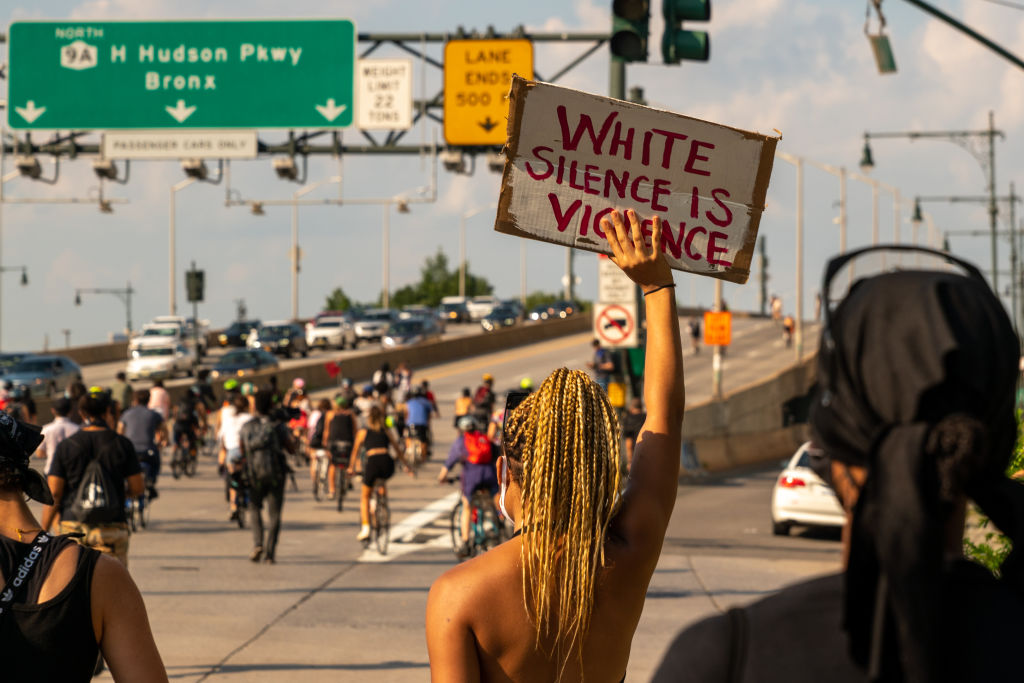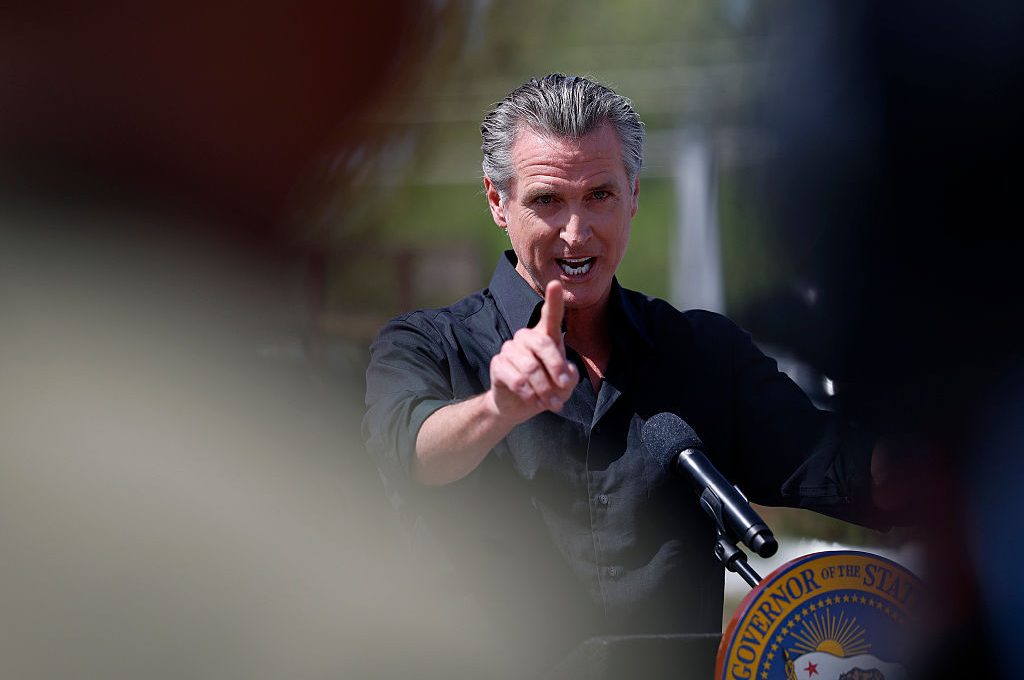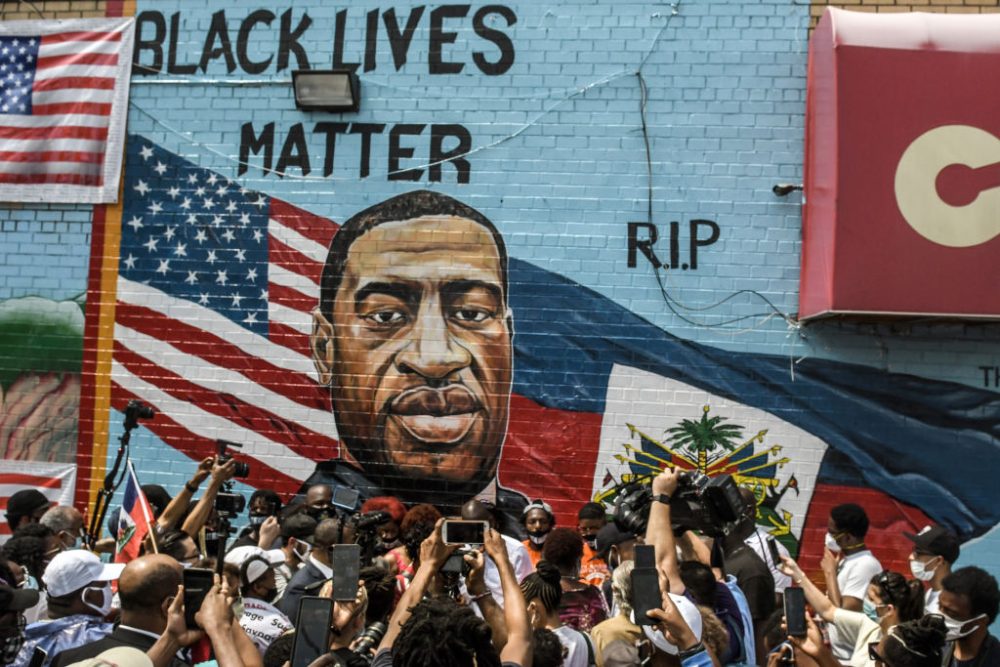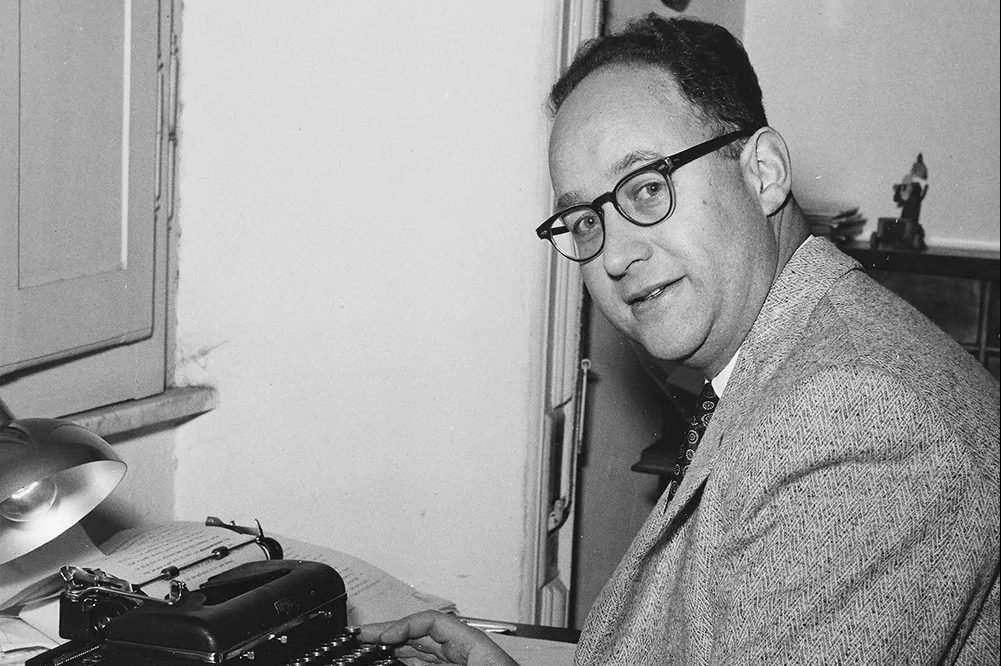‘All I want for Christmas is White genocide.’ So remarked George Ciccariello-Maher, then professor of politics and global studies at Drexel University in December 2016. He was a man ahead of his time. Today his Christmas wish might qualify him for an endowed chair at a suitably woke college, but his sanguinary tweet back then resulted in a suspension and his eventual resignation. Possibly he could averted these sad consequences of his rhetorical excess if he’d had a race card to play, but George is white.
Sociology professor Johnny Eric Williams had to endure only a brief suspension from Trinity College after he counseled black emergency responders to deal with white gunshot victims with a simple procedure, ‘Let them fucking die.’ Prof Williams wrote that in the context of the June 14, 2017 shooting of six men at a practice session for the annual Congressional Baseball Game for Charity in Alexandria, Virginia. The victims, all of whom survived, included House Majority Whip Steve Scalise. Williams’ career survived, despite a public outcry. He then went to polish his art of provocation with further pungent observations in 2019 such as ‘White kneegrows really need a lot of therapy and a good ol’ ass kicking,’ and the succinct, ‘Whiteness is terrorism.’ Williams, of course, is black. (‘White kneegrows,’ he later explained, was his term for conservative blacks such as Candace Owens.)
Ciccariello-Maher and Williams provide instances of the venerable rhetorical device of exaggeration. I take it that the Drexel professor didn’t really dream of waking up Christmas morning to mass executions of Caucasians, or that the Trinity professor truly meant that black ERs should let whites bleed out. So why say such outrageous things?
No doubt they were bidding for attention. The cheers of the home team are a matter of pride, but the impotent rage roused in the enemy by such provocations is so delicious that they would consume the whole candy store of sweet slanders and confectionary contempt if they could. Some imaginative effort goes into this work: ‘white kneegrows?’
Racial insults are a large part of this descent into rodomontade among progressives who aspire to a reputation as among the edgiest, most out-there taboo breakers. But the game has other venues besides riling up race resentment. The Hyperbole Olympics also features events for Hating Trump, Dismantling Social Order, Whipping the West, Canceling Capitalism, Castigating Carbon, Ridiculing Religion, Berating Breeders and Antagonizing America. Contestants often try for laurels in two or three at once. ‘Love Trumps Hate’ is a slogan aimed in one go at poking President Trump, promoting gay rights, and posturing for diversity — but it lacks any real punch. George and Johnny did better.
The winners in woke rhetoric are those who frame some idea so preposterous that seemingly no one could take it seriously, but who then persist as though they are absolutely in earnest. ‘Defund the police.’ ‘Zero carbon emissions.’ ‘Confiscate all guns.’ The headline phrase gets the outrage engines revving, at which point the apostles of woke recite their more detailed demands, though sometimes it seems the rationale is invented after the trope has been launched.
‘Defunding the police’ might mean something like ‘transfer the responsibilities and funding for public order to progressive social workers.’ But it might also mean — and for some true believers it definitely means — eliminate the police altogether. Zero carbon emissions is purportedly a call for more solar and wind energy production (but not carbon-free). But it might also mean — and the true believers are emphatic that it does — let’s reverse the industrial revolution and impose third-world subsistence standards globally. And so it goes. A wild exaggeration properly delivered with an angry snarl becomes a policy brief for some and dystopian fantasy for many. ‘Smashing fascism is my cardio’ nicely lampoons the exercise-minded middle-class while reveling in the double fantasy that America is fascist and that the activist/vandal can do anything more than lower property values in Portland or Seattle.
The Mardi Gras parade of dramatic magnifications of trite ideas wends a path through all the precincts of contemporary progressivism, but racial animosity is its true home.
The phrase Black Lives Matter may be the all-time champion of compact provocations. As a declaration of fact, no one can or would contradict it, but it carries semantic weigh far beyond its plain meaning. We learned that in November 2015 when the president of Smith College, Kathleen McCartney, wrote in the subject line of an email to students, ‘All lives matter.’ She was trying to express support for activists protesting the killing of unarmed black men, but she herself became the target of protest for writing ‘all’ rather than ‘black’. In the eyes of the activists, this was an act of disrespect for which McCartney then humbly apologized.
It was soon clear that ‘Black Lives Matter’ — BLM — has talismanic significance. It came to mean not that the lives of blacks should be respected like the lives of everyone else, but that blacks should especially respected in light of all the indignities that they have suffered. This is, at least one hopes, hyperbole, but let’s call it the black exceptionalism doctrine: black lives matter more than anyone else’s. Black Lives Matter also became the name of an organization with a radical agenda and a chant used to shout down campus speakers. When Charles Murray was shouted down at Middlebury College in March 2017, the mostly white student protesters spent a good portion of their time rhythmically reciting, ‘Black Lives Matter.’ It is seldom clear when the name is deployed whether the speaker is endorsing the Marxist organization, the black exceptionalist doctrine, or the simple claim to equal rights.
BLM and kindred movements have been fertile ground for hyperbole. Among the conceits arising from it are the demand to ‘abolish the Prison Industrial Complex’, end the ‘School to Prison Pipeline’, decriminalize all drug related offenses and prostitution, and pay ‘restitution’ to all who were incarcerated. Abolishing prisons has much the same logic as defunding the police. If you favor total lawlessness it is no doubt an attractive proposition, but mostly it seems like an attempt to throw a rhetorical rock through the window of bourgeois complacency.
‘White silence is violence,’ ‘No justice, no peace’ and ‘Is my son next?’ — BLM-style protests are a virtual Bartlett’s of catchphrases that embed brazen misconceptions. Silence, which was once golden, can be put to ill uses, as when you observe the open manhole but saying nothing to the pedestrian about to step in it, but lack of interest in, say, closing down the prisons and compensating the former inmates isn’t ‘violence’ by any meaningful standard.
What is? Nikole Hannah-Jones, the originator of the New York Times 1619 Project helpfully explained in the wake of the George Floyd riots, ‘Violence is when an agent of the state kneels on a man’s neck until all of the life is leached out of his body. Destroying property, which can be replaced, is not violence. To use the same language to describe those two things is not moral.’ Thus looting and burning down stores, destroying livelihoods, and torching communities is not violence, but staying quiet in the mist of mayhem is.
The disinclination of people to engage plainly irritates the provocateurs, who try again and again to find the riposte that will rouse the opposition. ‘That’s not a chip on my shoulder, that’s your foot on my neck.’ ‘If you think your mask makes it hard to breathe, imagine being black in America.’ ‘Karen you have the power to stop this. Call the manager.’ (And the related, ‘I’d like to speak to the manager of systemic racism please.’) ‘We’re not trying to start a race war, we’re trying to end one.’
These phrases mock the supposed white audience in the hope of playing on white guilt. Plainly they succeed with some. BLM protests are often orgies of white self-recrimination. Someone always wants absolution, though the crime be wholly imaginary. Hyperbolic accusation somehow takes root in these crevices. Is ‘systemic racism’ a real thing or an undefinable figment of self-pity and resentment? Does the demand for ‘reparations’ for slavery rest on a real calculus of historic harms or is it a counterfeit that projects dissatisfactions with the Great Society welfare state back on to a remote past?
[special_offer]
The whole ‘1619 Project’ ought to be read as the printing press for this counterfeit moral currency. None of its major claims have withstood close inspection. America is not now and never was a ‘slavocracy’. The Revolution was not fought to protect slavery. American prosperity didn’t arise solely or even primarily from cotton plantations. Hannah-Jones and her colleagues concocted the 1619 Project in the spirit of getting a rise out of white Americans, and in that they succeeded. Rhetorical excess can work provided it plays on the right level of public gullibility.
History seems especially vulnerable. Illinois State Representative LaShawn K. Ford recently caught national attention by calling for the abolition of the study of history in the state’s public schools. His press release explained that ‘current school history teaching leads to white privilege and a racist society’, and he wants Illinois schools to stop teaching it ‘until appropriate alternatives are developed’. This is pitch perfect: an outrageous claim floated as a call for common sense reform.
I don’t expect an ‘appropriate alternative’ to outrageous overstatement will appear any time soon in the rhetoric of the progressive left. What could displace the gleeful spite that comes of misstating some point in a few succinct words that would your opponent thousands of words to answer. Rhetorical Molotov cocktails are cheap. Fire engines are dear. All I want for Christmas is some peace and quiet.

























